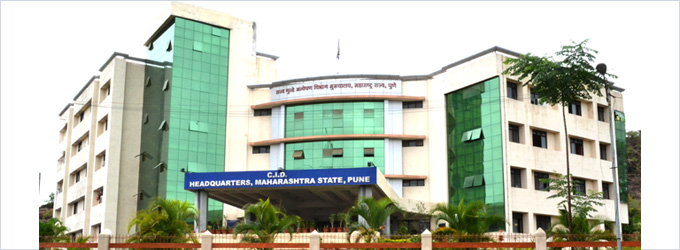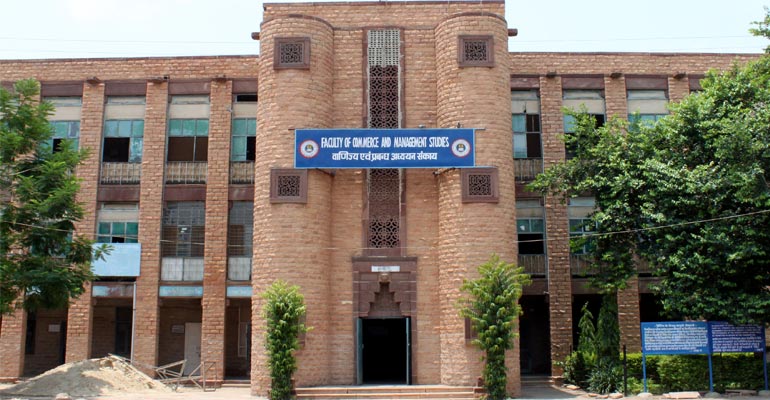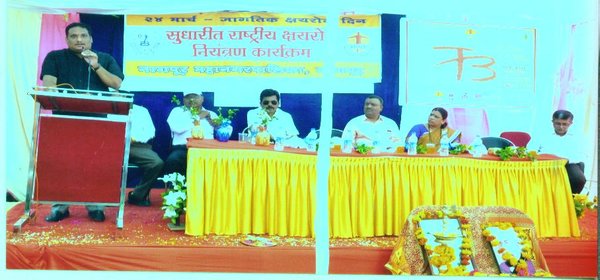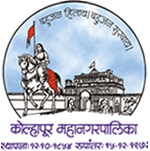About Shivaji University
Shivaji University, established in 1962, is named after the Great Maratha Warrior and founder of the Maratha empire Chhatrapati Shivaji Maharaj. It was inaugurated on 18th November, 1962 by Dr. Radhakrishnan, the then President of India. One of the major objectives behind foundation of this University was to cater to the regional needs of South Maharashtra. The jurisdiction of the University is spread over three districts viz. Kolhapur, Sangli and Satara with strength of about 3,00,000 students studying in 280 affiliated colleges and recognised institutes. This region of Maharashtra boasts of rich and varied socio-cultural heritage.
Under the innovative and socially reformist leadership of Chhatrapati Shahu Maharaj, the princely ruler of Kolhapur, the city had become at the beginning of this century, a focal point of educational opportunities for all classes and communities of South-Western Maharashtra, and northern parts of neighbouring Karnataka. This is also land of Karmaveer Bhaurao Patil, who struggled for taking education to the masses by his innovative 'Earn and Learn' scheme. When the University was founded by the Shivaji University Act of 1962, the objectives set before the University included making opportunities of higher education accessible to rural youth, conducting fundamental and applied research in the field of science and humanities to ensure regional growth and development.
Official Address
Contact Information
- + 91 - 0231- 2609000
- Visit Official Website
This organization has released 3 recruitment notifications in the last 3 years.
Expired / Closed Notifications
-
Shivaji University Kolhapur Invites Application for Project Officer Recruitment 2025Closed: May 15, 2025
-
Shivaji University Invites Application for 5 Assistant Professor Recruitment 2023Closed: Jan 20, 2023
-
Shivaji University Invites Application for Assistant Professor Recruitment 2022Closed: Dec 30, 2022
-
Shivaji University Invites Application for 34 Assistant Professor Recruitment 2022Closed: Dec 28, 2022
-
Shivaji University Invites Application for Programmer Developer Recruitment 2022Closed: Dec 09, 2022
-
Shivaji University Invites Application for Principal Recruitment 2022Closed: Nov 30, 2022
-
Shivaji University Invites Application for Course Coordinator Recruitment 2022Closed: Nov 26, 2022
-
Shivaji University Invites Application for Project Assistant Recruitment 2022Closed: Nov 09, 2022
-
Shivaji University Invites Application for Assistant Professor Recruitment 2022Closed: Oct 27, 2022
-
Shivaji University Invites Application for 33 Teachers Recruitment 2022Closed: Oct 20, 2022
-
Shivaji University Invites Application for Assistant Professor Recruitment 2022Closed: Oct 14, 2022
-
Shivaji University Invites Application for Principal Recruitment 2022Closed: Oct 13, 2022
-
Shivaji University Invites Application for Principal Recruitment 2022Closed: Sep 30, 2022
-
Shivaji University Invites Application for Assistant Professor Recruitment 2022Closed: Sep 27, 2022
Shivaji University located in Kolhapur, Maharashtra was establieshed in 1962. The University is named after the Great Chhatrapati Shivaji Maharaj. It was inaugurated by Sarvepalli Radhakrishnan. Shivaji University offers B.Tech and M.Tech in Aerospace Technology, Bio-Technology, Civil Engineering, Chemical Technology, Computer Science and Technology, Environmental Science and Technology, Electronic Technology and Energy Technology.
.gif)




